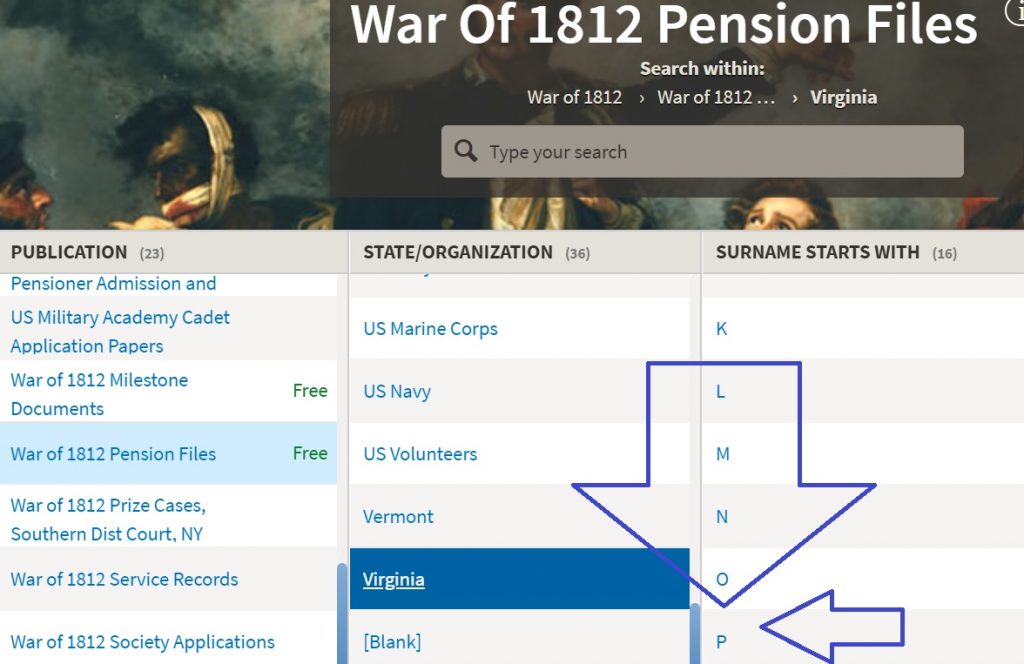To receive a US War of 1812 pension, the veteran (or his qualifying widow) had to live until they became eligible for a pension. Not all soldiers lived that long. 
Legislation regarding US War of 1812 pensions was not really passed until the 1870s. An act in 1871 indicated that soldiers had to serve sixty days and widows had to have married the soldier before 17 February 1815. The 1878 act cut the service time down to fourteen days and eliminated the marriage requirement for widows. It’s important to remember that these acts were enacted nearly six decades after the war ended.
That meant a lot of soldiers and their widows were dead by the time the pension legislation was enacted. It’s still beneficial to search for pensions of uncles, aunts, cousins, and family associates–just remember the time frame. Fold3 is digitizing the pensions and putting them online for free.
More War of 1812 soldiers applied for land warrants based on their service. Many of these land warrants were applied for as the result of legislation in the 1850s–when more War of 1812 veterans were living. Those warrants can be searched at the BLM website. The warrant application (effectively a pension application) would be at the National Archives.








4 Responses
My ancestor served in the war of 1812. I’ve seen documents that show that to be a fact. His 2nd wife was destitute in Mississippi after the civil war. There are many documents concerning her attempt to receive a pension on his service. She was not successful. She gave his full name on these documents. His service records show him as Middle Name, Last Name. That’s the government for you!
Well they finally got to the “P’s” but all I get is his name. I know his widow applied for his pension before she
died in 1890. Where do you get more info. at FOLD3?
The index from the National Archives has been put online at Internet Archive (links here http://lineage.gradeless.com/1812PensionApplications.htm). Fold3 should have the images of any who is listd on their page. What name were you looking for?
I was looking for John Pervorse. Thanks for link. I will try it.